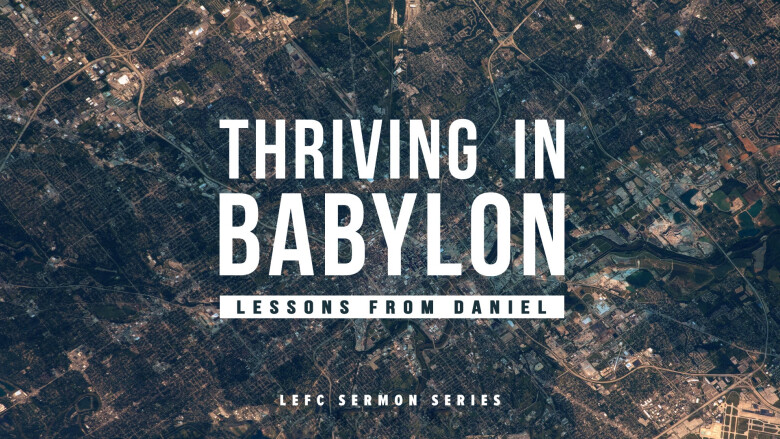Choosing your battles
*Illustration:
Quid pro quo. The Wall. What truly constitutes hate speech or bigotry in discussing matters of sexuality? Is the “gun” the problem? Are there not constructive policies concerning guns that could be wise for society?
Many of you can go on a diatribe in answering those questions or arguing your points.
Could you as easily respond to someone who says, “I cannot stand my family they are way too religious for me.” “I don’t get you Christians, all you do is force your views on everyone else.” “I simply just don’t get you evangelicals or Jesus people.” “I don’t think your Jesus is for me.” “I think Jesus is one of many viable paths someone could choose to find peace.” “I am not sure how I am going to make it another day.” “Is there hope to be found for me or future generations?”
Daniel’s choice in battles. Daniel 1:3-8
Battle Option #1- Fight the offensive name given him—Belteshazzar.
- This name means “Bel’s prince”. Bel is a god worshiped in Babylon, also known as Marduk. Bel was known as “the god of order and destiny.” Doniger
- Was Daniel to fight this name that would imply that he is a worshiper and even royalty of a false and foreign god?
- The offense would be repeated every time you heard your name.
Battle option #2- Fight being defiled by food that violates the diet restrictions given by God and likely food that had been dedicated to idols.
- To eat food sacrificed/dedicated to idols would be in direct disobedience to God.
- He would be defiled and made unclean before God.
Daniel chose to tolerate offense but fight defilement. Why?
- To be offended does not create a separation between you and God.
- Grieving offense is better than confessing disobedience.
- Defilement would be a sin of choice whereas offense is most likely the result of another’s error.
How often does the gospel, the good news of Jesus Christ, go unheard because Christians too often fight the battle of offense rather than concerned about one’s relationship with God—both you and the hearer?
Jesus’ example in choosing battles wisely. Mark 12:13-17
- Two questions meant to derail Jesus from his mission.
- Is it right to pay this extra tax as a conquered people? (14c)
- Should we pay this tax? (15)
- Jesus answers the second affirmatively but does not speak to the offense of the tax itself.
- Jesus also inserts the greater question as to “what is God’s?”—back on mission!
Daniel wins the fight of offense without fighting.
- Daniel’s Babylonian name simply becomes an evident misname.
- He does not worship Bel at all.
- His reputation of Yahweh worship stood stronger than a King’s name.
- Nebuchadnezzar’s daughter-in-law clarifies the distinction of Daniel’s true identity. It is Daniel “God is my judge” not Belteshazzar “Bel’s prince”. Gardner Daniel 5:11-12
- Daniel is known exclusively as Daniel. Daniel 6:13, 19-20
Take Aways.
- Keep the good news of Jesus Christ, the gospel, as THE MAIN THING in your life and before others!
- Don’t let offense derail the message of the gospel in both your life and in your words.
- Let God fight the battles of offense as he does his work to promote his name. [Example: language and even events.]
Let Jesus’ name be the name that matters!
Series Information

Many in America feel that our culture is so pagan there is no hope and consequently live a defeated life or a life of fear. Daniel lived in an increasingly pagan culture yet thrived in his faith—even impacting the entire kingdom. This series will look at how Daniel thrived in his walk with God when few others dared.
